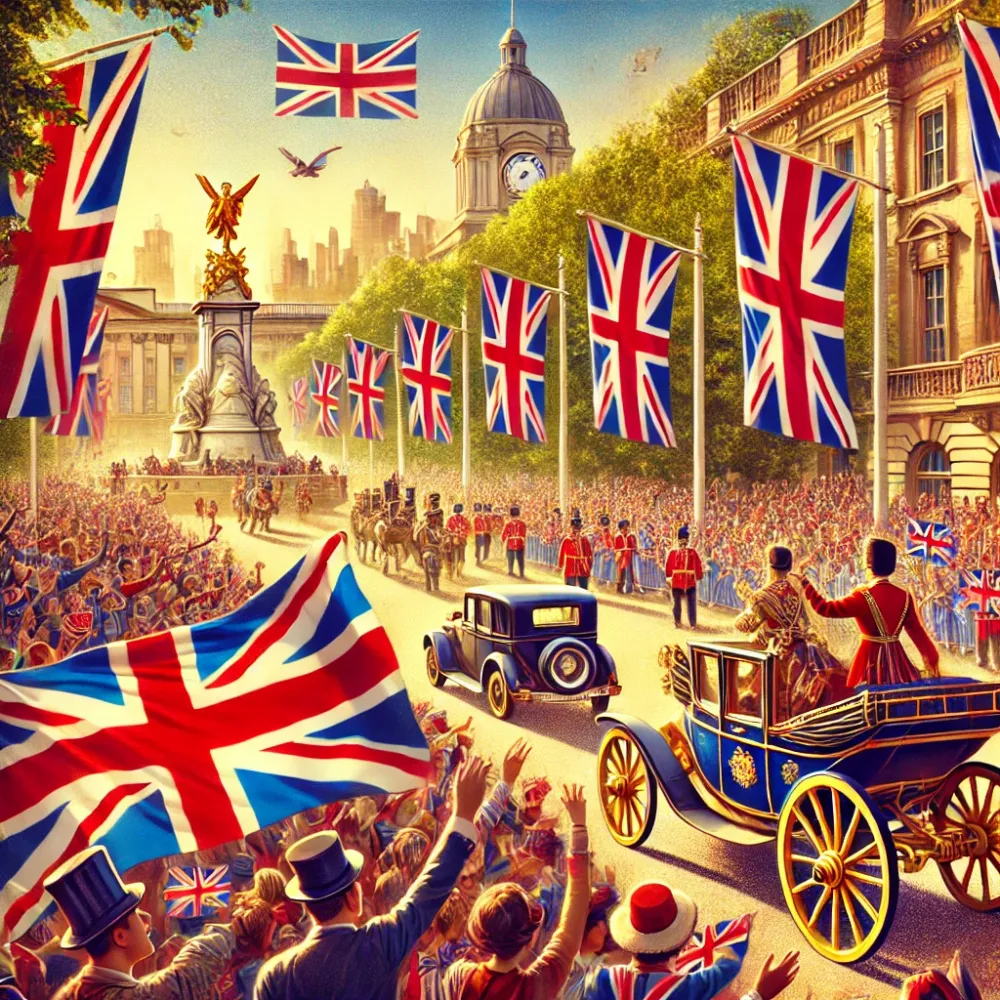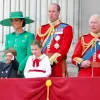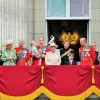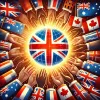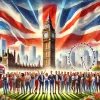The British Royal family. The beating heart of a nation’s identity
What does the Royal family mean in the modern world?
When you think of Britain, what springs to mind? Big Ben? Afternoon tea? Or maybe a classic red telephone box?
But towering above all these cultural icons stands one institution that defines Britain like no other—the Royal family.
Whether you’re a loyal royalist or a sceptic, it’s impossible to deny the impact and enduring importance of the British monarchy, both at home and abroad.
Far more than just a glittering figurehead, the Royal Family is a cornerstone of Britain’s national identity, weaving history, tradition, and global influence into the fabric of everyday life.
Let’s dive into how this centuries-old institution continues to shape who we are as a nation.
A legacy that shaped a nation
The British monarchy has been the backbone of the country’s story for over a thousand years.
From the Magna Carta to the modern Commonwealth, monarchs have played pivotal roles in moments that defined not just Britain, but the world. This deep historical connection is why so many Britons feel a profound sense of pride in their Royal Family—it represents continuity in an ever-changing world.
Take Queen Elizabeth II, whose 70-year reign was marked by extraordinary stability and global respect.
She wasn’t just a figurehead; she was a symbol of resilience and duty. For millions, her passing wasn’t just the end of an era but a reminder of how deeply intertwined the monarchy is with our collective identity.
However, there have been moments of crisis too. In the 1930s, King Edward VIII’s abdication shook the monarchy to its core.
Yet, his brother, King George VI, restored the Crown’s reputation by guiding Britain through the Second World War.
Such stories remind us that the monarchy is not immune to challenges, but its strength lies in its ability to adapt and endure.
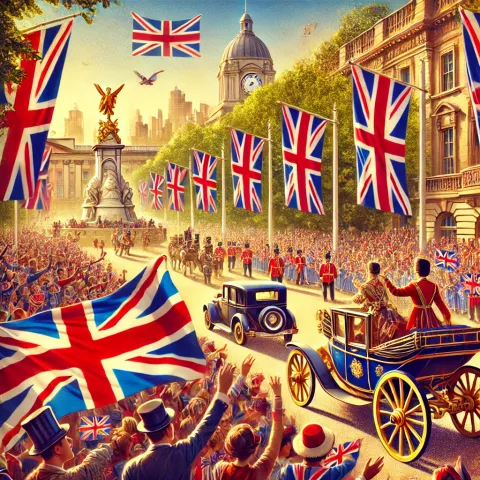
The monarchy and national pride
In today’s world of fast-paced news cycles and fleeting trends, it can be easy to overlook what truly binds us as a nation.
Yet, every time a royal event takes place—whether it’s a wedding, a jubilee, or even a Christmas broadcast—it brings people together. Streets are lined with Union Jacks, neighbors gather to celebrate, and, for a brief moment, the country feels united.
The Royal Family embodies the spirit of Britain, showcasing our culture, traditions, and values to the world.
Their ceremonial roles, from state banquets to opening Parliament, reinforce a sense of pride and pageantry that no other nation can replicate. In many ways, they’re the ultimate ambassadors for Britishness.
Critics often argue that these events are mere spectacles, but they miss the deeper truth: these moments remind us of what it means to be British. In an increasingly fragmented world, such symbols of unity are more important than ever.
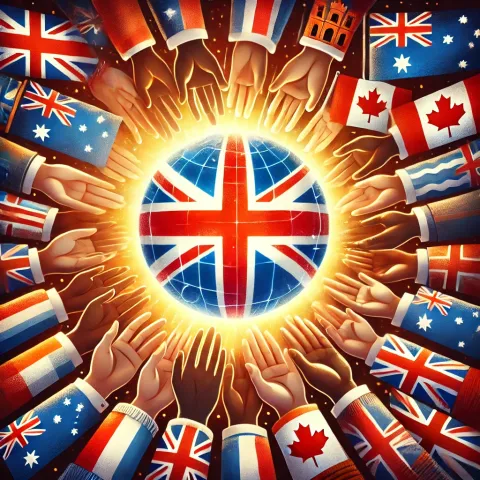
More than a symbol: A global force
Critics often reduce the monarchy to a "living postcard," arguing it’s little more than a decorative institution.
But this couldn’t be further from the truth. The influence of the British Royal Family extends far beyond Buckingham Palace.
Take the Commonwealth—a unique network of 56 nations, including Canada, Australia, and India.
These countries may have their own governments, but their connection to the British Crown strengthens diplomatic ties and fosters unity on the global stage. For instance, during the Queen’s tours of Australia, her presence was met with massive public support, underscoring the unifying power of the Crown even in independent nations.
Even in matters of soft power, the Royal Family wields unparalleled influence. From Prince William’s global campaign against climate change to Princess Kate’s focus on early childhood development, their actions amplify Britain’s voice on critical issues.
It’s a form of diplomacy that doesn’t rely on politics but on the universal appeal of their roles.
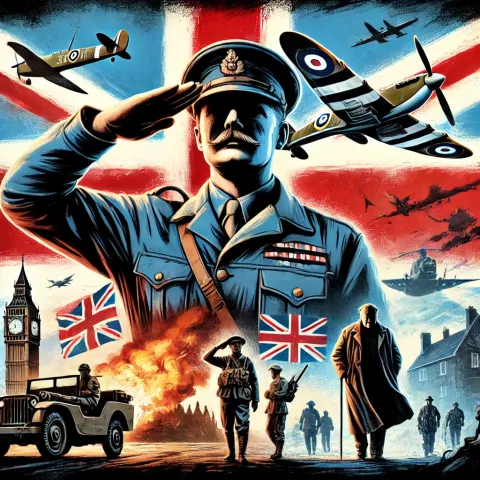
The monarch’s hidden power
One of the most misunderstood aspects of the monarchy is its constitutional role.
Yes, the monarch’s power is largely symbolic, but it’s far from non-existent. In fact, the King holds some significant constitutional tools that could alter the nation’s course in a crisis. For example, the monarch has the power to dissolve Parliament, a rarely used but crucial function in extraordinary circumstances.
A prime example was in 1975 when Australia’s Governor-General, acting on behalf of the Queen, dismissed the country’s Prime Minister during a constitutional crisis.
While controversial, it highlighted the monarchy’s role as a stabilising force when political systems falter. Moreover, the monarch’s weekly meetings with the Prime Minister aren’t just tea and small talk.
They’re an opportunity for the country’s leader to seek counsel from someone who’s seen decades of political upheavals.
Queen Elizabeth II worked with 15 Prime Ministers, offering insights that often proved invaluable.
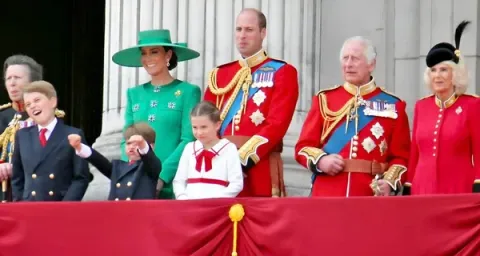
A family with a mission
At their core, the Royal Family are people like us. They face personal struggles, navigate family dynamics, and experience the pressures of modern life.
Yet, their role comes with an extraordinary mission: to be the face of Britain, to uphold traditions, and to provide a sense of stability in an uncertain world. For example, Prince Harry’s candid discussion of mental health broke barriers and encouraged conversations that were long overdue.
Meanwhile, King Charles III has made climate change a personal crusade for decades, long before it was a mainstream concern. Their actions show that they don’t just represent Britain, they champion its values.
Of course, like any family, they’re not without controversy. From publicised family disputes to criticism of their wealth, the monarchy has faced its fair share of scrutiny.
Yet, these challenges only make their enduring relevance more remarkable.
Why the monarchy still matters
Some might wonder why the monarchy continues to thrive in an age of change and progress.
The answer lies in its unique ability to adapt while staying true to its roots. The Royal Family isn’t just a symbol of the past—it’s a beacon of what Britain stands for today: resilience, unity, and a commitment to serving others.
For many, the monarchy represents something deeper than pomp and circumstance. It’s a reminder that we’re part of a story bigger than ourselves, a story that stretches back centuries and will continue long after we’re gone.
In a world that often feels fractured, the Royal Family serves as a steady force, a living link between our history and our future.
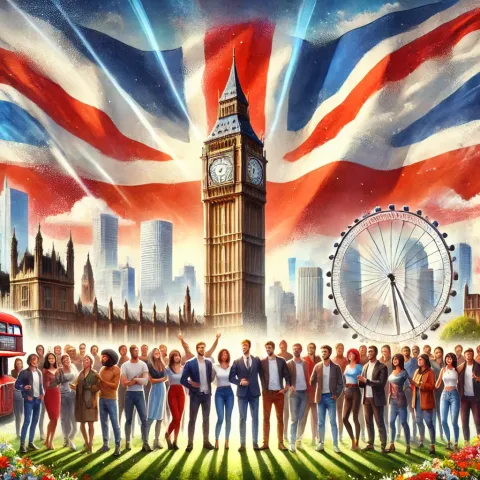
A shared identity
At the end of the day, the Royal Family is as much a part of Britain as Afternoon tea or a rainy afternoon.
They’re not perfect, and they don’t claim to be. But their mission is clear: to serve, to unite, and to inspire.
The monarchy may wear crowns and wave from gilded carriages, but they’re grounded in the same soil as every Briton.
They remind us that, despite our differences, we share a common identity and a collective pride.
The Royal Family is more than an institution; they’re a reflection of who we are and a promise of what we can be.
